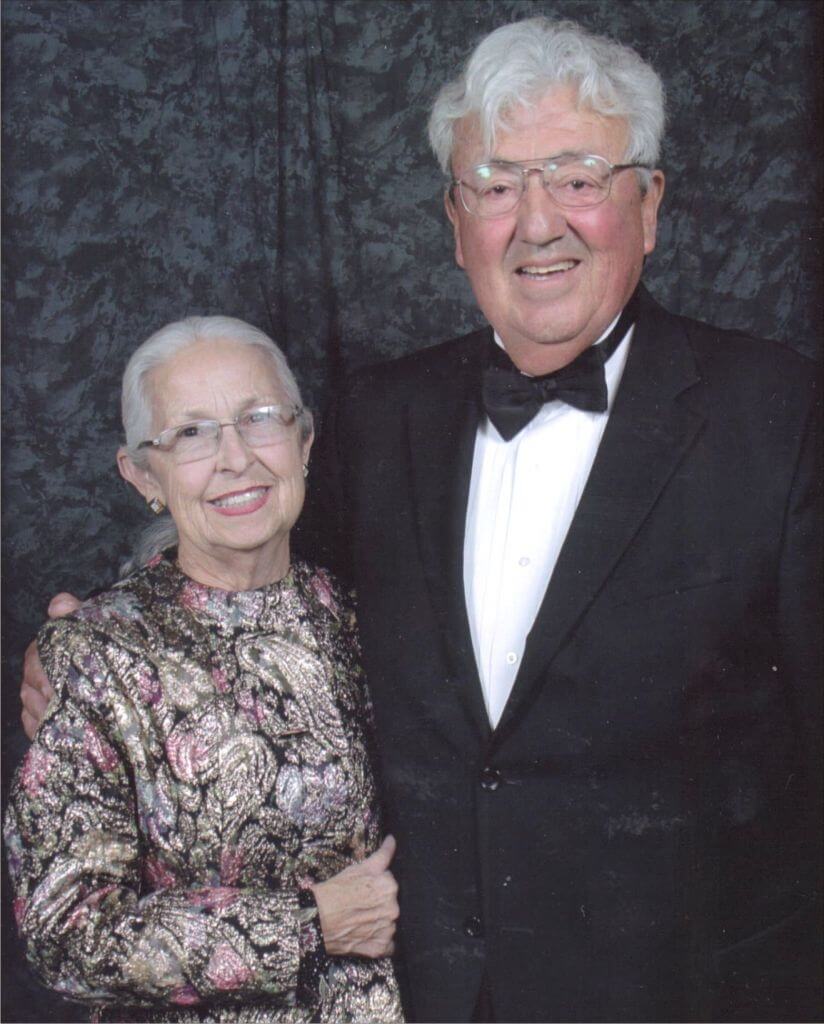Who the hell is Lou Peralta
While relaxing a bit in Baja, I had the opportunity to sit down and have an in depth chat with a true legend, Lou Peralta. An Immigrant, Air Force Veteran, Race promoter, Off-Road racer/Enthusiast, Magazine Editor, Actor, Skateboard Promoter, Philanthropist, Humanitarian, and someone I'm proud to call a friend. This conversation was recorded, whereas to not miss a single detail. Below is the transcript of this incredibly enlightening chat. So grab some popcorn, and get ready to have your mind blown as you come away with a bit of history.
Matt Martelli:
Alright, so let's start at the beginning. What drew you to off-road racing? How'd you get involved originally?
Lou Peralta:
Actually, it started in the desert in Southern California in 1966. My brother-in-law was into bikes, so I bought Old Bultaco and took the lights and fender off of it because it was a street bike, and made it into an off road bike/dirt bike. I started racing in Ascot and then went through the desert and found that the desert was fun for the whole family, and so it started. From there it grew to the point I got a Husky, got more serious, and began racing both motocross and desert from then on. By about 1970, I was racing almost every weekend, and twice during the week at Ascot, and Friday nights at Long Beach. So it just got in our blood quickly.
I said to myself, “I got to do this more often”. Then in '70 or was it '71? The very firstTecate 500 Enduro started here. My brother-in-law and I started this thing with a few other friends. It was a blast, and we did it for the next 7 years. That eventually gets you involved in other things, with other people, other friends, and you gotta make this and that, and you gotta go to that event, all kinds of stuff. So it was a pretty interesting time in my life because I was married, had 3 kids, so it wasn't like I was a young pup or anything, I was already in my 30s. So that's how we started.
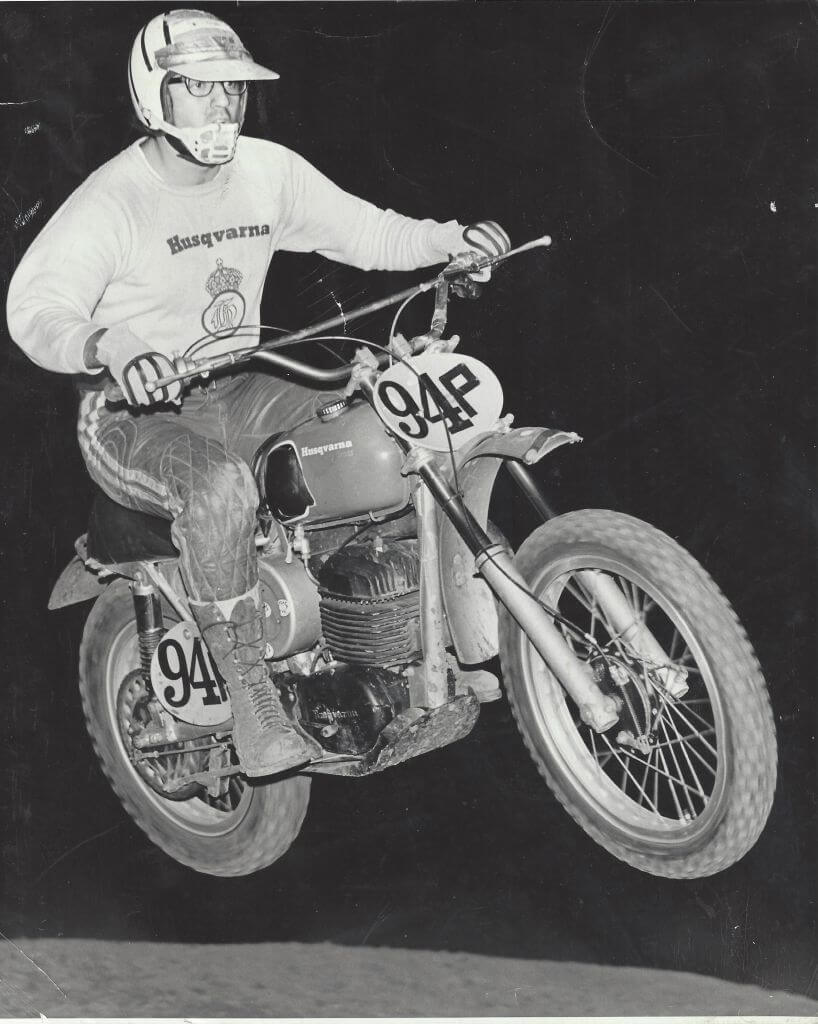
Matt Martelli:
When you found the desert racing, or just riding the desert, was it something you were hooked on immediately?
Lou Peralta:
Yeah, it offered the challenge. I think the best part is you're not really racing against somebody else, you're racing against yourself. It's a way of affirming what you believe in and what you think of yourself being. It’s a slap in their face when you do it and realize you can do it. Even in the most adverse conditions, the big deal is to give it a shot. I had pretty good luck, won some things, but I've always tried to finish first. That was the challenge. That's not a challenge of trying to win a race or anything, it's a challenge of yourself you know, so a lot of times you're challenged to the point where you just want to stop.
Sometimes you start to think, oh it's not worth doing at all, you gotta get this fixed, and then you say to yourself, "okay, well I'm here. I might as well do it" and that builds kind strength whether you have it already, helps you build it in real life too, when you get the challenge and you say "oh shit, I can't do this anymore" and you say to yourself, "well, yeah I can." Interestingly enough, I just remembered one thing that I've been through in my life - for everything that I've done, as a family man, as a business person - I've always recalled thinking to myself, "This is the summit." And let me tell you what the summit is.
I think it was the 2nd Tecate 500 Endura in '71, '72, I had a head on collision with some guy in the forest and cut my knee up, and I still had 500 miles to go with the summit. Bleeding profusely out of my leg ... you know what it is, the summit out here in Mexico? ... and I said well you either sit here and bleed or just keep going. It took me two and a half, three hours to go over the summit, because I was in first gear just trying to hang on. Got to the top now you gotta go down, and I've been running so slow in first gear that I ran out of fuel. And it was midnight before they came and found me and I mean, the whole process your mind goes through, all the things you've done in life, what you wanted to do and it just reaffirms a lot of things you've done. So I use that, the summit, for anything. If someone gives me a challenge today, I remember the summit. If I can get through the summit, I can get through this.
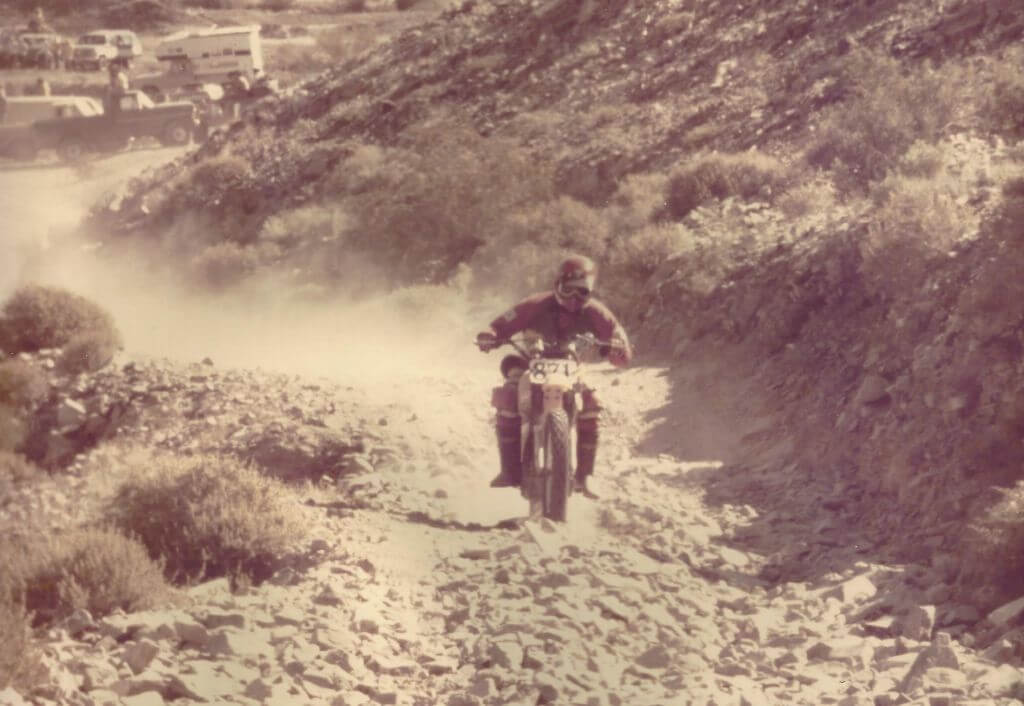
Matt Martelli:
Yeah, that's a good analogy for challenges that we face in our everyday life, right?
Lou Peralta:
Absolutely.
Matt Martelli:
You know, that brings me to my next couple questions. You started as a racer like a lot of people, but you're not only a racer, you got into the business side of the industry. Talk about how that transition happened. What made you do that?
Lou Peralta:
It was never planned. In fact, I was a happy racer. I was good friends with Sal Fish down here in Mexico, and Mickey Thompson and I used to come to San Felipe all the time with family and friends and go ride, stuff like that. Everyone down here knew that I knew Sal Fish and Mickey Thompson, and so the people, the powers that be at San Felipe had had some problems with Mickey and Sal years before, and the racing officials had pulled out of San Felipe and left, but the community wanted the race back. There was a new administration down in San Felipe and the San Felipe 250 was always a great race, it was always my favorite race. Can you talk to Sal Fish and Mickey Thompson and see if they want to come? We'll do a barbeque for them, that was the concept, from the locals.
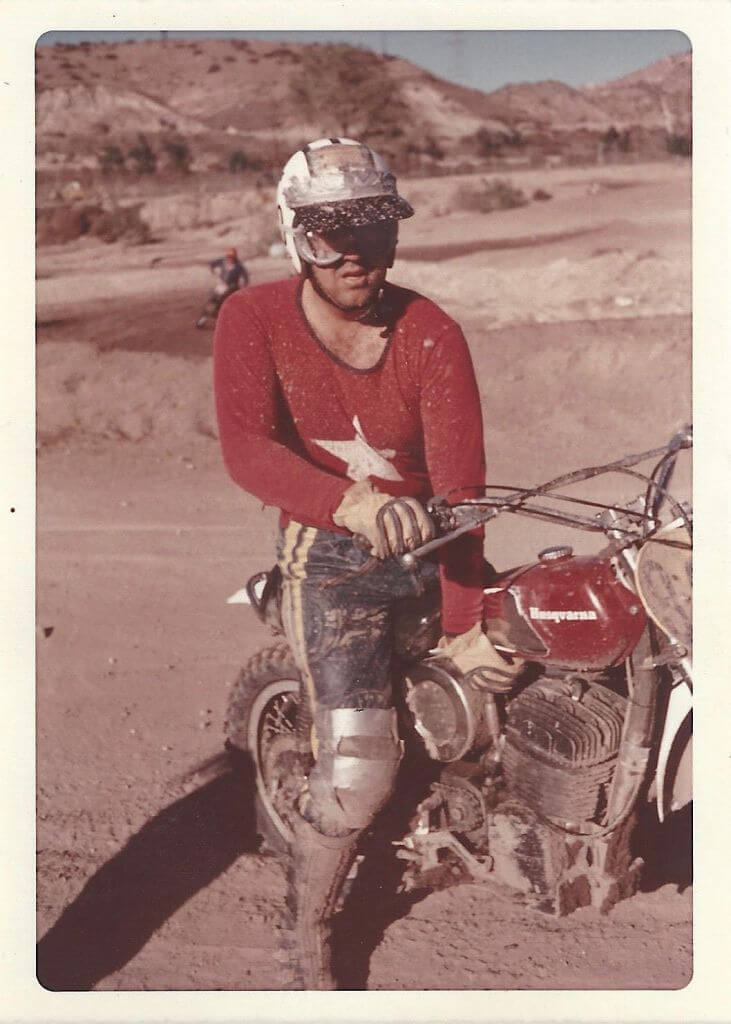
I was still a racer. By then I was building skateparks and stuff like that. I was sponsoring a contingency so I got to be pretty well known in the industry. Then they said, if you can bring Sal Fish and Mickey Thompson here it would be wonderful, we'll do a barbecue for them. So we did. Lois would come in here on a Thursday, they were supposed to leave, I get a call from Sal saying, "Mickey doesn't want to go to San Felipe”. I said, "We're already making a barbeque for you guys." Sal Says, "We're gonna go and just tell him, he doesn't want to do it."
So, to cut a very long story short, we're at the barbeque on Sunday and we had told everybody they weren't coming so the guy from Tecate Beer, the big honcho out here in Mexicali, comes over to me, and he takes an envelope out of his jacket, and says, "Lou. Here. You do the race." And it was like $7,500 dollars. This was back in 1985, a $7,500 check?! That was a lot of money. And Lois and I looked at each other and said, "well, why not? Let's try it." Our 25th anniversary was coming up and so I said, "what better way than to invite our friends and celebrate the 25th in San Felipe”, and that's what we did. We put on the very first 250 Baja Promotions. We got about 140 entries out of it and it was great fun. Pretty soon they said "okay, you gotta do some more." And that's how we did it.
Matt Martelli:
So was that the race that basically led to the San Felipe 250?
Lou Peralta:
No. The San Felipe 250 was already established, but it had just gone away with Sal and Mickey not following through with it, they were pissed that San Felipe, whatever reasons, you get that - but it was the race we started and eventually brought Sal back in. Still today, it's a fun race! Fun, talented, good people, always make for a nice weekend ... I liked it because at that time I was racing motorcycles, so we had to leave at 6 o'clock in the morning. By 10:30 or 11 o'clock we were back in the pool while everybody else was racing. I remember sitting with Larry Rossler in the same pool and talking about this. You can come to San Felipe, race in the morning, then we can sit here and drink all day.
It was kind of neat. It was really a fun time, and that's how we got started to the point where, at one time during the twelve years, we're producing 22 events a year here in Mexico. San Felipe, Mexicali, Tecate Ensenada, Rosarito Beach. Whether it was motorcycles, ATVs, off-road, you know, all the classes, and also, we brought in jet ski racing. So I mean, it was fun. We brought our kids with their friends. You gotta remember that they were very cheap labor at that time, because they were young kids going to high school and they loved coming to Mexico because they could drink beer at 16 or 17 you know ha ha. It was just a free for all. It was wonderful.
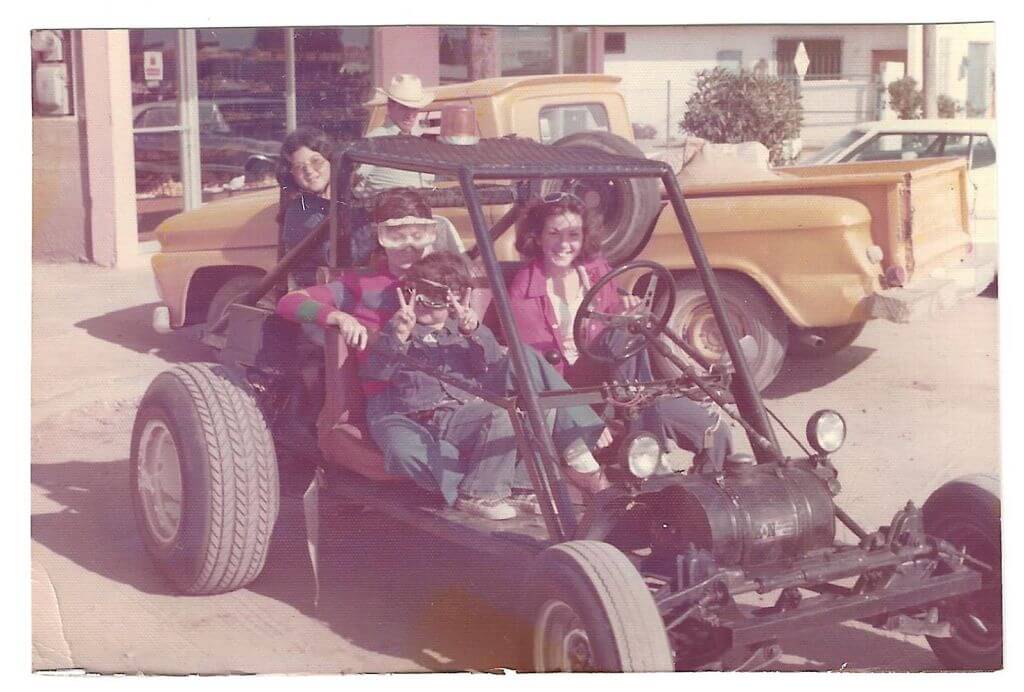
Matt Martelli:
That's right. Talk about some of those other events that you created because there were quite a few that led to other people doing racing events. I remember talking to Alfonso Lecara from CODE and he said you had a big influence on him, you kind of showed him that they could put on races, that Mexicans can put on races in Mexico for Mexicans.
Lou Peralta:
The big thing we realized when we first started was we certainly weren't going to be competing with SCORE. Not on the level that they were at, but we found a niche because our entry fees - it always seemed very funny to me that we would come here to play in Mexico, in Baja, in their own backyard - and we'd basically excluded most of the Mexicans. These people that have been here for a long time. Most of the time, the average Mexican racer couldn't afford it. So when we started the Baja Promotion Series, we said let's just keep the entries low. Let's not be too crazy with it, and we were able to bring in a lot of Mexican racers that are racing today, and their kids are racing today, and their kid’s kids are racing - which is really amazing.
Sometimes I walk down to contingency and there are people there I've known for 40 years. I don't recognize their faces anymore and stuff like that, but they remind me. It's wonderful that we created a culture here that people could enjoy in Mexico, and that's what we did. I think that was our biggest contribution to racing here in Baja was that we allowed a lot of young people who otherwise couldn’t afford it to come and race. Then they stepped up to the higher level with SCORE and stuff like that.
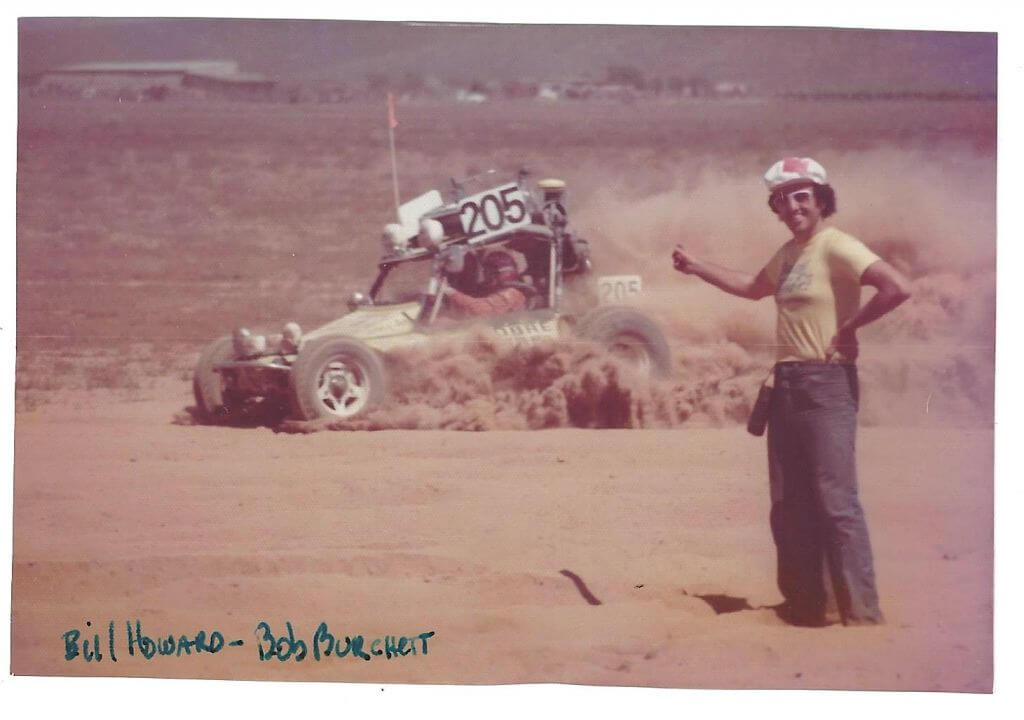
Matt Martelli:
So you're down here and you're putting on all these races and then, I remember one of the coolest things I saw was this magazine shows up called "On Dirt", and that was the first off road magazine. Talk about that a little bit.
Lou Peralta:
Yeah. Well, “On Dirt” was exactly what we liked to do, be in the dirt. Whether it was flat tracking, motocross, desert, and we just thought we had to put it together in one package, that would be a fun thing. Fortunately we had our family, my two girls and my boy, get involved. So my oldest girl was editor-in-chief, Laurie. Leslie handled the business end of it with her mother and Lonny back there did all the artwork, the creative part of it, the photos and stuff like that. It was a family affair, at one time we had 80,000 ... 80,000 subscribers ... that's major punk. It went concurrent with another magazine that we published, before that, it was RC News. That was a huge deal cause we started RC car racing in our skate park.
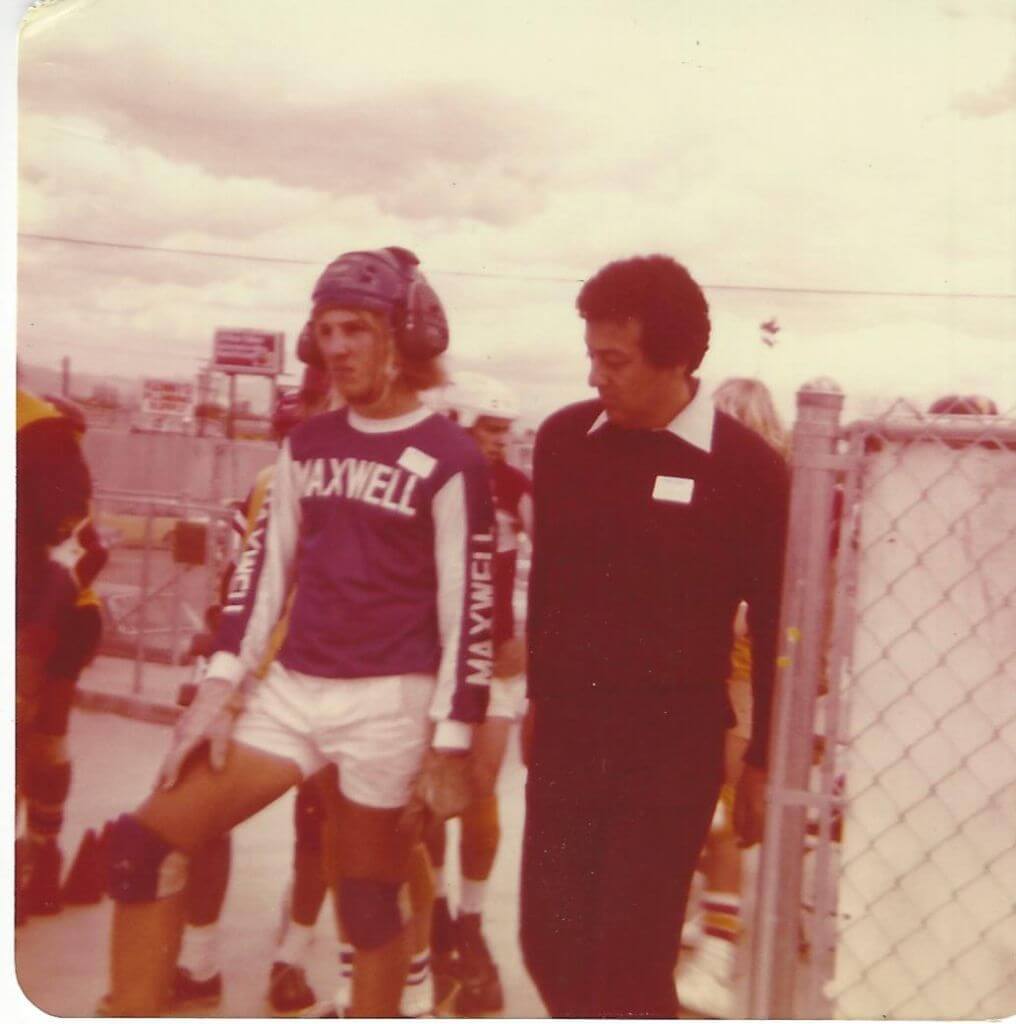
We went to a toy show in Long Beach. Lonny, myself, and a fellow by the name of Eric Gresham, and we saw there were these kits that you can build a little baja bug or single seater. So we went back home on a Friday night, assembled several cars with the Japanese instructions, we couldn't even read the instructions just pictures. Lonny, myself and Eric built a little track outside of our skatepark and started putting on RC car races. So we published that magazine and then we went on to “On Dirt Motorsports”.
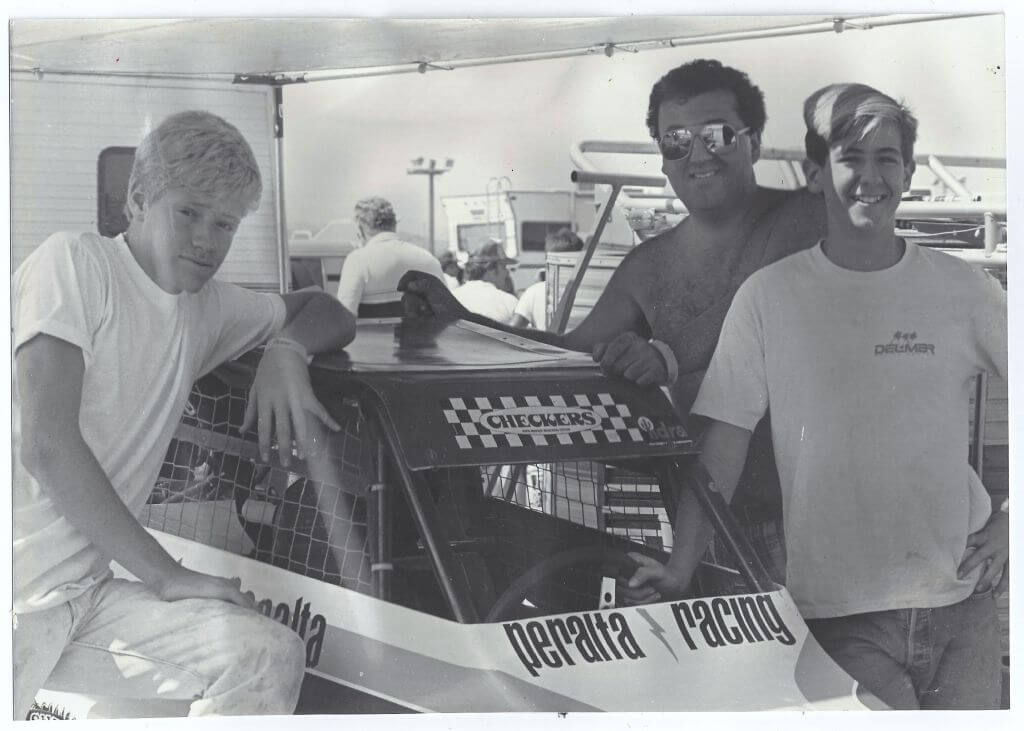
Matt Martelli:
That magazine obviously led to all these different off-road magazines now. Why did you guys do that? What was the idea behind doing that magazine?
Lou Peralta:
It's like what we did with everything else, we did with the skateboarding. When we did RC cars there was a way to communicate with the consumer, to talk to the individual who was participating in it. It was really a way to promote events. Cause there was no way that you could get a hold of somebody in skateboarding and tell them there was a slalom competition up in San Diego or something. There was no way you can tell RC car guys that there will be a race in Pomona this week and next week it will be our place in mini Baja or whatever. So there was a need that needed to be filled.
The On Dirt was really the offshoot of the first two and you know, Lonny and I loved all kinds of dirt sports, so why not have it all in one magazine. We used to get reports from everybody who did all the speedway stuff to Mike Goodwin who did the super cross desert district 37 guys, district 36. So there was a lot of stuff. And then we would get a lot of stuff from back East. You know, flat track races and stuff like that. So everything was, in fact, the name, I remember it now, was called - On Dirt Motorsports. If it throws dirt, we cover it. Ha Ha I remember that.
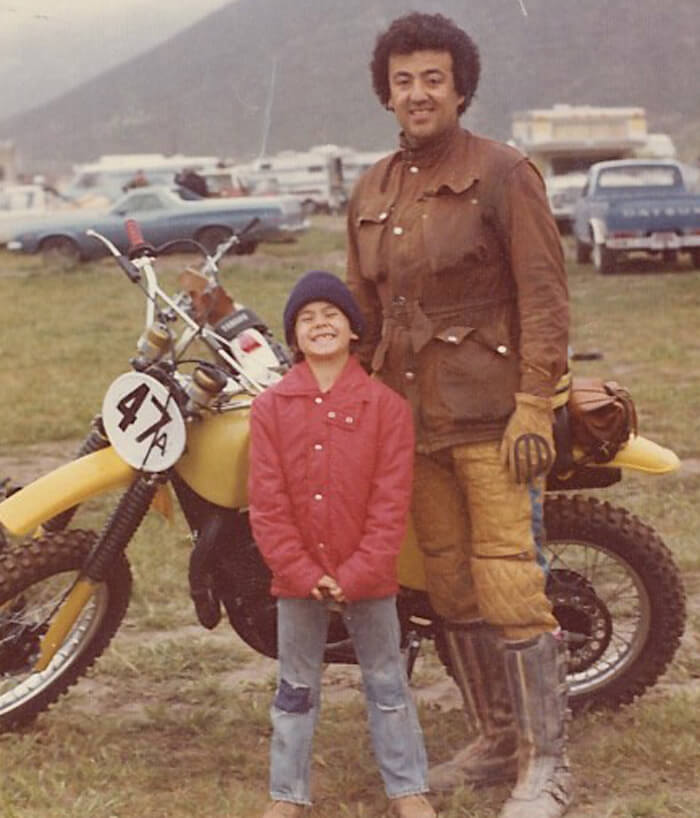
Matt Martelli:
That's rad. So, you know, you had a long career in doing that. Why did you decide to get out of the promotion side?
Lou Peralta:
I didn't get out, I'm still doing it, but now Lois and I awhile back, said we were just traveling too much. It wasn't just us, you know like you guys do, we bring a crew of 6 or 7 vehicles with people in it and they help you to do everything and stuff like that and you start adding up all the mileages and especially since we're doing most of them in Baja. You just get tired a bit of traveling, but we didn't get out of the promotions business. We're still promoting events today.
Matt Martelli:
So how old are you? And you what, two years ago now you started AV?
Lou Peralta:
I'll be 76 in two months. Oh no, AV started about 11 years ago, 12 years ago.
Matt Martelli:
But recently you just started promoting UTV races?
Lou Peralta:
UTV races about 5 years ago, we started that. We saw that there was something neat coming down the pipe. I thought it was great. The equipment that was available then, you can't even compare to what is available today. Today there are wonderful pieces of equipment. But we saw there was a possibility that people would gravitate to that end of it. For the simple reason that anytime you can walk into a showroom and put your name down and buy a piece of equipment and go race it the same day. I think it's great. And back then when we first started, there may have been 50 different companies producing after market stuff. Today there's probably almost 300 now. Everything from tires to shocks to seats to everything. So it's a very healthy thing and I think it's a wonderful piece of equipment.
I got to give credit first to Yamaha, because they were the ones who really started a lot of the UTV game, but they kind of backed off. Then here comes Polaris who really made the sport what it is today. Everybody owns a big debt of gratitude to Polaris. Because now you got Yamaha back in again, with others joining fast with some amazing things to come.
Matt Martelli:
Did you ever think because of your history, you were essentially there from the beginning of off-road racing - so did you ever think there would ever be a vehicle that you could go buy at a dealership that was that capable?
Lou Peralta:
Nope. Not from the beginning. I just thought, man you gotta learn, you gotta talk to a lot of people, be friendly with the manufacturer, the aftermarket people - so you can have access to parts. I mean, it's just a growing process. What we saw with the UTV world is that it is actually possible. Where you can actually go to a dealer. You don't have to know a fabricator. You don't have to do anything with shocks. Somebody else has done it for you. Now it's included in this stuff. So the learning curve is totally different. Whereas you start with bikes and eventually look at cars, you gotta find who does the best work, and if you can't, you have to learn all this stuff. A guy can walk in there, talented individual, maybe not so talented in some cases, but go in and buy this stuff. And be part of a community that's all heading in the same direction. I think it's a wonderful deal.
What I like even more with the UTVs is they put 4 seats in them. Now the wife or the girlfriend can't complain too much because she can get in it. She can be part of the deal. The kids can even be part of the deal too. So I think it's natural. Five years ago we saw there was going to be a major change in our sport and also in the classes, the expenses have grown tremendously in terms of being competitive. So you're talking half a million dollars to get a nice trophy truck. More often than that, it's even more than that. We just had one built that's over $750,000. There aren't too many people that can afford that. But there's a lot of people who still love off-road racing. Then here comes the UTV where you don't have to chase for parts. The parts are in the catalog, and the dealership. You can actually walk in and plunk down whatever you need to do and you buy shocks or you buy seats or you buy doors, whatever, you know.
So I think it's changed the sport for the better and from now on. And I see in the near future, you're still going to have the big classes, the trophy truck classes, class 1, maybe class 10. But the rest of the classes, unfortunately, unless you're living in Baja, Class 11s, Class 9, Class 8, they're all trucks you know, Jeep Classes, you have to have parts manufactured. The VW plant has basically gone away little by little. It doesn't mean the competition is any better, cause you gotta be unique - you know, Larry Rossler, who I admire him and Jack Johnson for many years - they were terrific on motorcycles. But he's still terrific in a truck. He's still terrific in a truck, and now he's terrific in a UTV. So talent always overrides everything else you know.
Matt Martelli:
You've written a few books as well haven't you? Can you tell me a little bit about those books.
Lou Peralta:
Well, you know, people are saying that I just overwhelm them sometimes with stories. But they're true. And, ugh Lou, not another story. You know if you were a checker like I am, the first thing you'll say, you'll pull a you- know-what. So I had to document all these things. Because the first two Baja - dazed and confused in Baja is what I named them. They're just short stories of all the experiences that I've had. We're riding around Baja yesterday and I'm pointing out to Lonny certain things that bring back to mind what happened. Coming down Mike's, I remember going up Mike's with three other friends, one of them is no longer with us, but he never wanted to be second. He always had to be leading the pack. And this other friend of mine, Roger Rodell, and I would stop him from trying to get around us. So he went sideways and blew a turn into the cactuses, into the choya, barrel cactuses they call them, and I could pick the stuff with needles, I mean just great stories. Just fabulous things, you know, so I had to put them down on paper. I've got two books on that. But then it kind of prompted me to write a story about Baja in a sense. Again with all the experiences that I have. It's called the 51st State. I really think it's natural. Baja could possibly be another state, because it's totally separate from Mexico. It's really more like the United States than it is Mexico. So I wrote that and I wrote some other stuff. It just prompted me to do some things.
Matt Martelli:
Will there be more books to come?
Lou Peralta:
Yeah. I'm working one now, we took a little vacation, we went to see my sister in Hawaii and I wrote a family diary I guess from the time my mother, dad, my sister and I left Peru in 1948. It was kind of cool and we wanted to come to the United States, but the United States wouldn't have us for at least 5 years. So we had to go somewhere. And so we went to Argentina when Juan and Evita Peron were just elected and everything was great. And we saw a country that was terrific, and then it’s demise you know. So those 5 years I documented in a book called, entitled, "Life, Interrupted." And it will cover 53’ to 58’ when we first came to the United States. 1953. I was 13, and my sister was 11.
Matt Martelli:
Nice.
Lou Peralta:
So yeah, there's books.
Matt Martelli:
Fascinating. You know, let's talk a little bit about your education. Like, when people look at the business side of off-road - did you learn that in college or were you self taught?
Lou Peralta:
Self taught. I decided after high school - I met my wife. And my mother and father said, look, don't rush to anything. Before you decide to get married, go into the service. So I went into the Air Force. I signed up for the big time, 6 years. I was gonna become a pilot. I was gonna fly - this was 1961, no 60 - and went to Lackland Air Force Base in Texas and I was going to go into the Academy and all that kind of stuff, but an accident took place with my instructor and I pulled a tendon which apparently I'd done before but it wasn't caught. I pulled the tendon and if you weren't the perfect specimen to become a flyer or pilot, you couldn't do it. You have to be perfect, your eyesight, everything, your whole body has to be. So I was in there for a little while and he says to me, "Lou, you can't fly." I joined the AirForce to fly. And I didn't want to do anything else except fly.
They said you have an option, we'll give you a 4f referral, or we'll send you over to I think it was, Electronics school or whatever, radar and stuff like that, and I saw that as a sign of God telling me, Lou I think your days are over as a pilot. And decided to take their offer. They gave me 350 dollars - enough to take a first class airplane from Lackland Air Force Base back to Los Angeles. And instead of doing that I took the bus for 36 dollars and came home with probably 250, asked Lois to marry me and went to work for a bank.
Matt Martelli:
Nice.
Lou Peralta:
And that's how I got into the business world by the way. I learned it from the ground up. I joined Bank of America and the night shift, balancing tapes that all the tellers and all the branches would send in with checks and stuff like that during the day. We'd go into the processing center. Bank of America was just starting Panda - P-A-N-D-A - that was their electronics, their computer systems. So I worked with that and then I went to Union Bank and then that was it.
Well yeah. And the funny thing is, and that's a pretty big story, but I've always looked at life as very curious. I knew I'd come from a country that probably wasn't going to be much better for me in terms of challenging, in terms of creativity, and stuff like that. So when I got here and saw the possibilities that everybody had - my father and mother always said, "Lou, you're not any better than the next guy, but you're not any worse either. So whatever you want to do, give it a shot, and do the best you can with it." So I did. I tried different things, and going to high school here, I learned a lot. You know, when I first started in grammar school here, the only thing I knew when we came to the United States was "yes" and "no." That was it, but my sister and I watched TV all summer, and learned english from television.
Young kids learn pretty quickly. So once we started learning it, my mom and dad said to me, "you know the best way to do it is we're gonna stop speaking Spanish in house because you'll never forget that. You're practicing your English so it sounds like you're getting better. You can assimilate a lot easier. People will look at you different." And I think I tried to convey that to a lot of people all these years, yeah great to believe in your country and be proud of where you came from and your roots and everything, but you have to assimilate if you're going to be in business. Simple as that, and you're as good as everyone else - no matter what race or color or creed - as long as you can assimilate with the rest of the people. Try to keep yourself separate, and there are hang ups. The country has a lot of hangups, but don't accept that. So you have to be smarter than they.
And I think we were, mom, dad, the family history of my mom and dad was wonderful. My father owned a dairy in Peru, successful, liked to play cards, and every day was a big party to him, you know, typical Peruvian male. My mother was home with her maids, we were raised by two maids, food was always plentiful and everything, and all of a sudden, we have to pick up and leave and go to Argentina and start from scratch. He started driving a bus. My mother started sewing. She was a wonderful seamstress, So it's a whole change of life that went on. Then 5 years later, we're picking up again and leaving from Argentina cause it got really bad and came to the United States and my father became a dentist, while in Argentina, studied at night.
Peralta did a little acting here and there as well
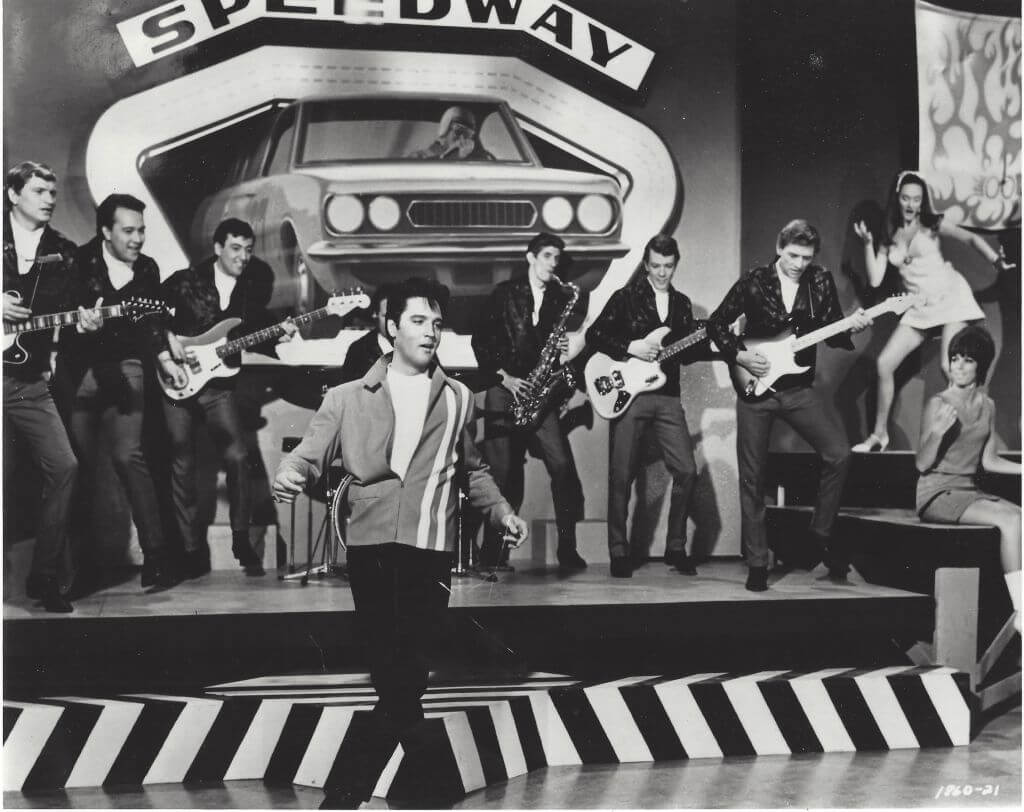
Acting in one of three films he did with Elvis Presley. (Third from the left, bass guitar) 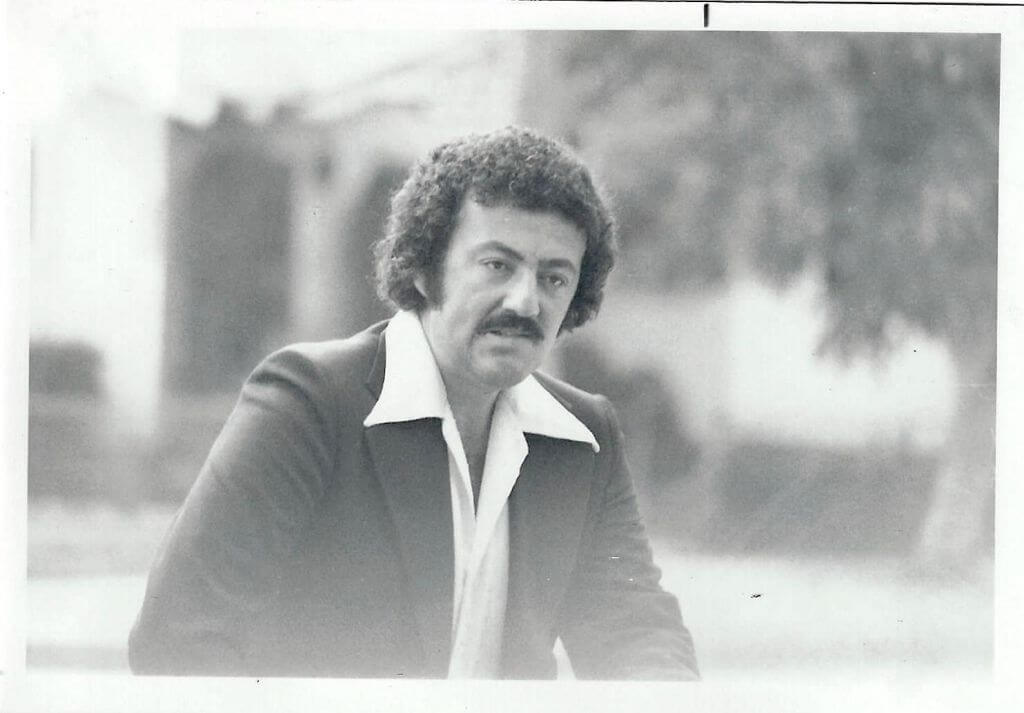
Portraying "Paco" a tough guy type in the television series Mannix. In the states it would be considered a Mobster type character.
Matt Martelli: Nice! Moving on, where do you come up with your ideas?
Lou Peralta:
You know it's very difficult to explain it because that's the way the mind works. Really. One day, I'm driving down Resedo Boulevard and some kid on a skateboard falls, and this skateboard rolls into the street, and I slam on the brakes and this kid comes running after the skateboard. And I slammed on it and I said to myself, there's gotta be a place for this kid. Secure, you know, so that nobody can run over them. Two and a half years later we built the very first skateboard park called Skate Across and guess where we build it? Now, Lois and I search all over the San Fernando Valley for a location. We built that skate park 600 yards from where I slammed on the brake on Reseda Boulevard. How's that play? I mean, there's something mystic about that, ya know?
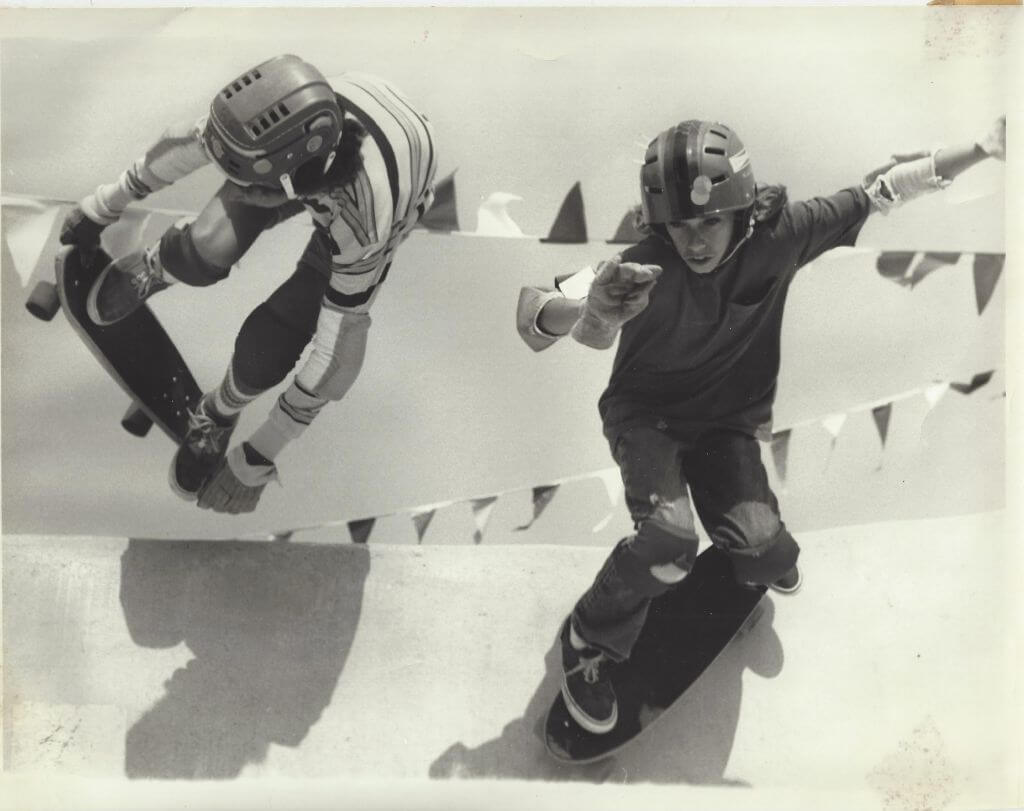
Lou Peralta:
So we did that, the RC car, Lonny and I went and sold these RC cars and years before, I remember talking to a friend of mine, Bob Maynard, and I introduced him to a few Chinese guys and Sal Fish goes, "Why don't you walk these guys around, they're asking questions, you know a lot of the racers and stuff like that. They were taking pictures. Two years later, there was a car identical to Bob Maynard's car, but it was in kid form. And there's a baja bug. So that got me started thinking, "Wow. We can make a little RC car" and we called it Little Baja.
Just things happen. I guess the best thing is you leave your mind and spirit open to whatever comes to you. You're not so close minded that you can't believe that things would happen. I mean the things I've seen today with technology and computers and stuff, I don't put anything past humankind to come up with some incredible stuff. It's being done every day. So that's how I come up with ideas. I get calls from people saying, "Hey Lou we oughta think about doing this or doing that" and I think about it. Sometimes something sounds silly, but I've also created stuff that didn't seem silly to me at the time and now they're using them.
Matt Martelli:
Totally. I mean, is that what motivates you? Is that desire to still be creative and you know, take your ideas and see them through and implement them?
Lou Peralta:
Absolutely. Absolutely. Going back to the skateboard deal. I came home. I remember this vividly. I went to my cousin's house for dinner and Lois and I, and my cousin, her husband - we sat at the table and said, "you know, there's gotta be a skateboard park somewhere." Didn't know what a skateboard was. The next day Lois and I went to city planning and asked what we needed for permitting to build a skateboard park. They looked through the green book, big, thick green book where they have all the different codes and everything and said, "we can't find anything about a skateboard park." So two and a half years later I had to write environmental impact studies, traffic studies, properties of cement when curbed, I mean, all this stuff we had to learn. And it was terrific, it was a great experiment, but it took us a couple years to do it. We spent all our money before we got one cent from the investor group. We were tapped out by the time a friend of mine says, "Lou, I think you got some investors." And it came to save the day. But that was it.
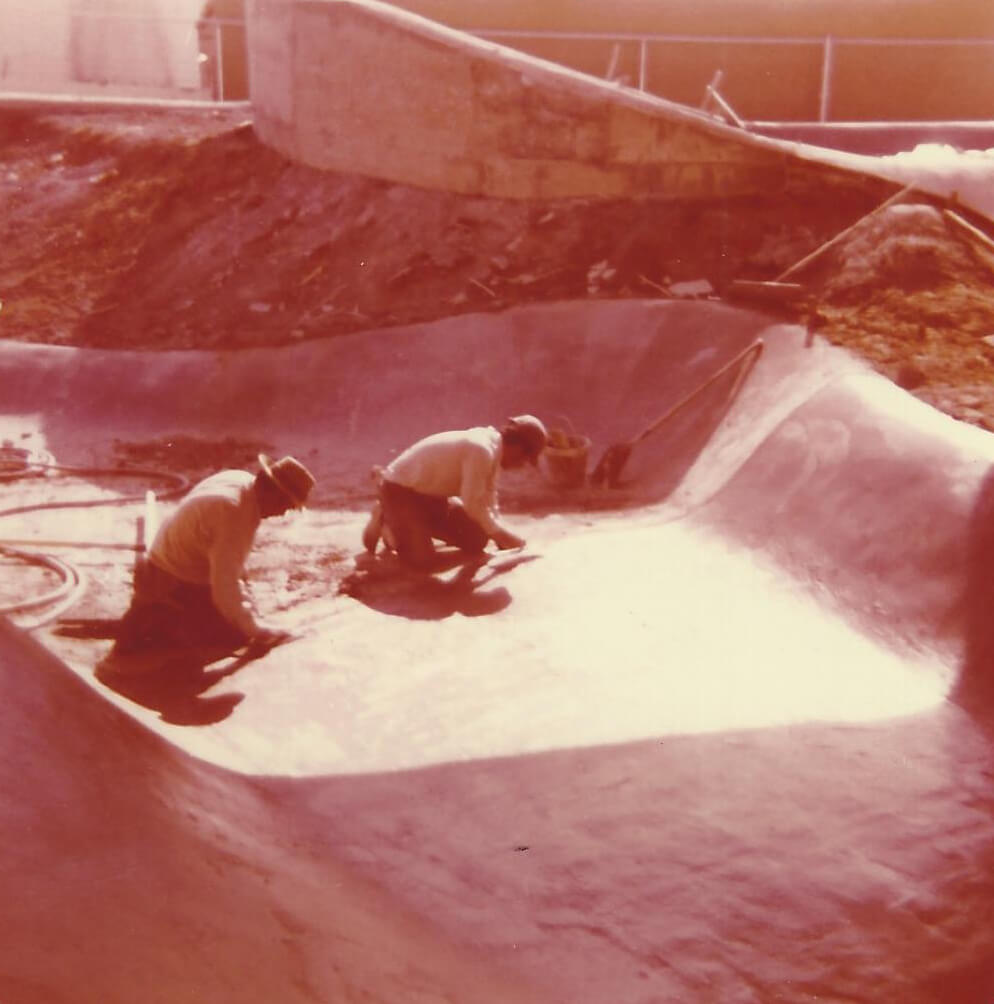
Final touches on the SkaterCross "Snake Run". The entire run was crafted by skilled workers, to make sure everything matched Peralta's design. 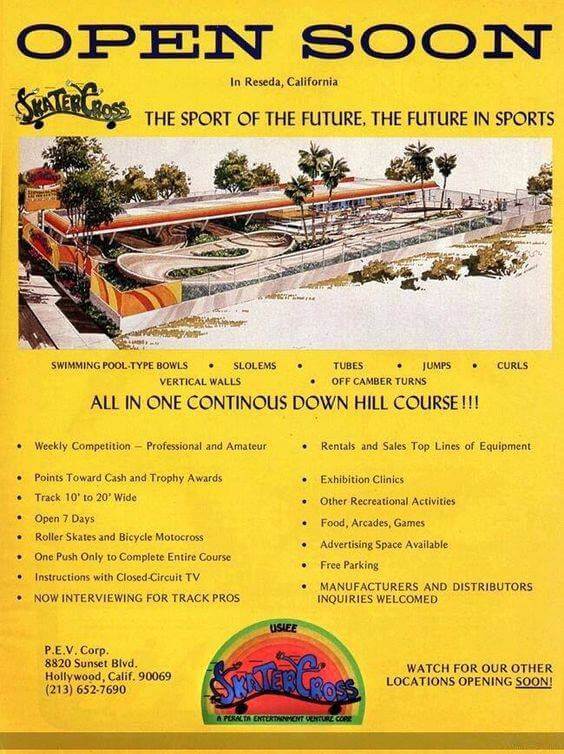
Architectural rendering of SkaterCross.
Matt Martelli:
Who inspired you and did you have any mentors?
Lou Peralta:
I wouldn't say mentors other than my mom and dad. I mean, they - inspiring is all encompassing. You can be inspired by a specific thing that you like to do. Or just be inspired by the realization that there's nothing you can't do. And it has to be bred, it has to be taught by someone like your mom or dad. You can do it. Those are your biggest fans. When you are growing up - I played ball, I had a good rapport with coaches and teachers and stuff like that - but it was always my mother and father who said, "Lou. Whatever you want to do, you can do it. Just do your best." So I think I could look at different people.
Lou Peralta:
When I first did this promotion business, I was inspired by Mickey Thompson. He took something that was just unknown and he created something. He created - now granted, there was one fellow before him who did it - and before them was three or four that brought Baja to the limelight. I happen to be friends with one of the sons of one of the guys who did the first ride here. '67 I think it was. So those are the kind of people you look at and say, "Geez, if they can do it, why can't I?" Just try. See what happens. You fall on your face a lot. A lot of times it doesn't go anywhere. The big important thing is to realize when that happens. Don't keep pounding on a dead horse. You give it a shot, you try it, if it's gonna work it'll tell you. You yourself know whether you're kidding yourself. I've heard you and I've heard other people have great ideas. You gotta follow through with them. And then you take what you learn from them and say, "okay, this is real good possibility. Or maybe this wasn't as good as I thought it was.
Matt Martelli:
Yeah absolutely. So, you know, was it hard when you first started into the promotions side of things, was it difficult?
Lou Peralta:
Very difficult. All of a sudden my best, not best friend, my good friend, Sal Fish was my enemy. Even though I had told him, I said, "Sal, they want you to bring an event to San Felipe. Tell Mickey that they want him. This is a different group of people." And he says, "yeah, we want to do it." And then for whatever reason, Mickey decided not to. Sal was working for Mickey at the time. They said no. So I was left to be in the conduit at first. But then when they told me, "you can do it Lou." And we did it, the first one, and it got me thinking, "well, okay, we can fill a niche. We can fill a niche. We're not gonna be the big gun like SCORE is, but we can certainly fill a niche that is needed. To get young racers involved in this sport, live and grow up, so those are the kinds of things that inspire you.
Lou Peralta:
They do make you say, "I want to give it a try." And that's what we did. I gotta tell you, I'm talking about all these different things, you gotta remember one thing. I was married at the age of, just turned 18. My wife just turned 16. And we've done that all these years, 56 years. So I don't know if I could have done it without her. Honestly. Because it's rare to find a woman that will accept the craziness. That will accept the unknown. You know, I was in banking, a solid job ... I left banking as an assistant vice president of Union Bank. And, not making a whole lot of money, because in banking you don't make a lot of money, but it was a solid future. In 30 years I could retire as a vice president or whatever. And to leave banking for the music business, it's crazy. Not knowing where you're next meal is coming from is crazy. Having three kids is crazy. And yet, getting into acting is crazy. And then getting into distribution and editing, because you gotta do everything to stay in game. You gotta have an incredible woman to follow that. If you don't, then you're misfortunate.
Matt Martelli:
Totally. You were talking earlier about your book and all the memories of off-roading. Do you have a best memory or best era of memories?
Lou Peralta:
No. Cause I think everything I've documented in the books has always been the best at the time. Like this weekend. I can see the real good stuff... we had a little bit of a problem here and there ... but I can see the real good stuff. By the way, having Lonny drive the whole way and me sitting on the right hand side allowed me to look at where we were going, some of the places and it brought back something I thought I had lost a little bit. It was the grandeur of what we have here in Mexico. I mean, I wrote about this many years ago, and you can nourish this country. We need to take care of it, clean it, keep it nice, educate - a lot of times we educate the bulk of people - because some of them don't realize how wonderful a country they have or what Baja is. And it brought back all those things. The beautiful trails that we were on, just to look around and see the growth and the flaura and the cows and the animals and the little ranches tucked away in the mountainside. How the people get there, what a struggle it is. It was great.
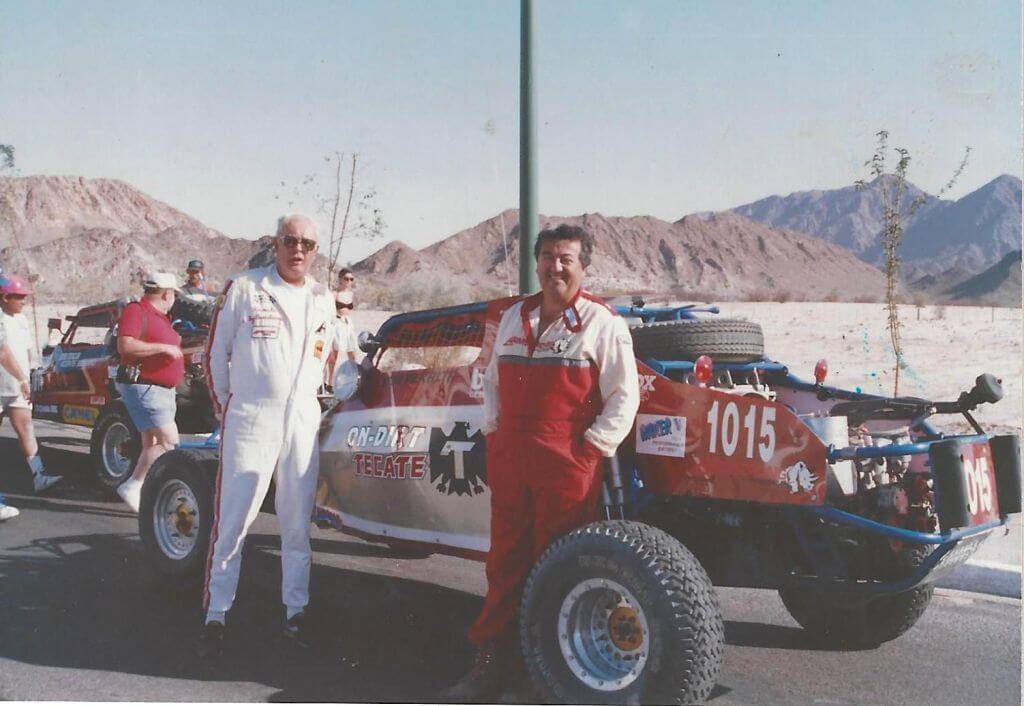
Matt Martelli:
Whether it's America or Baja we have to manage our national resources. I'm always irritated by the idea that off-roaders somehow don't want it to be pristine or beautiful, you know
Matt Martelli:
We were just riding around and every time I saw trash, I'd pick some of it up and when
Lou Peralta:
Let me say something. We were doing races in Tecate and a friend of mine, a local guy from Tecate, Carlos and I would hang around together, he knows the forest pretty well, and he'd say, "Lou, I'm going to show you a couple things." So we went up to the forest and they had a course and to go over here, to this area, we have to talk to someone in the town. So I went with him, and saw the police chief and it goes back to two things we were talking about earlier. Keeping Baja clean.
So the chief decided to come in with me to show me some trails if we can use them and because Tecate Beer was our main sponsor - I always have a couple of cases in the cooler of Tecate beer - and this sheriff was a nice guy but he loved the Tecate beer. So we'd been drinking and a couple times I saw him throw the can right out of the car into the bush. I stop. I went and picked it up, he wasn't upset or anything, he just said, "why are you doing that?" And I said, "Because we've been, it's been ingrained on us to keep our environment clean. We've been trained to do that and we want to keep Mexico clean." And he wasn't annoyed with me but he was just surprised that I would take the time to pick up the can and put it back in our car.
So it just reminded me of something - a lot of these people grew up that way. If you have trash, you just throw it in the bush. No one's gonna see it. Well, that's not true. You see it. So it's incumbent upon us people in the United States to help them educate in some sense, hey you don't do that in the States, we shouldn't do that here. More so here than anyplace else because you look at the land around you and it's incredible. This is California a hundred years ago. When you look at the Baja peninsula, it's California a hundred years ago.
Matt Martelli:
Totally. Totally. I couldn't agree more and it's our responsibility to make sure it's open for the next generation.
Lou Peralta:
Exactly.
Matt Martelli:
You know, we were talking about your best memory, covered that ... where do you see the future of off road racing going?
Lou Peralta:
This is a great question and I gotta tell you because you ought to, because you guys are younger, you're picking up the metal. You and some of the other guys are doing the kinda spiel and Tim Morton and those guys are doing beautiful things out here in Baja. Years ago, I proposed to the governor - I forget who the governor was at the time - but I did 7, 6 or 7, courses, permanent courses in Baja California, and I proposed that the state and the federal government, these are national off-road trails, to be used by promoters. Because like everything else, everything's growing. Just looking at Ensenada, we used to be able to take off from Ensenada and we'd be out in no time flat.
Now there's thousands of homes and everything so everything's gone. So we have to take a different mindset. And I proposed, and I bet you if I look hard through all my photos and documents, I'll find the courses, but I remember proposing 125, 250, 350, 500, 750, and 1000 mile courses designated as federal off road courses. Nobody can touch them. Nobody can say you can't go through. They're going to be difficult, there's a lot of grading that needs to be cleaned up, bulldozing and stuff like that, but you put it in areas where it's not going to affect the populace. And it's really kinda neat. I think that can seal the future for off roading. And we should let the rest of the country grow but this little slice of earth that we have here in Baja can always remain like a place to go off-roading.
I think in the states we basically have lost almost everything. Unless you ride motocross or track, so where else can you go for open desert like this? It's incredible. And I like to see that happen. As recently as a month ago I talked to a good friend of mine in town in Ensenada, Nico, who owns the St. Nicholas Hotel, reminding him, "Nico, remember a lot of years ago, when we thought, we oughta bring that back again, we have to challenge the government to say, okay this will be great." They know that Baja is a worldwide international moniker, that everybody knows Baja. You can talk about other events, important events, but Baja is Baja.
Not only the government, but also the off-road community, I told him, he’s ready to help and lay out this thing. I'm ready to help. You tell me, let's talk to the federal government about designating these areas, we'll go and work on that. We work the whole trail system basically so people can come enjoy it. It doesn't mean just for racing. It means you can come, guys now with their UTVs or their bikes, can actually ride the trail all the way from here down to Cabo San Lucas.
Matt Martelli:
I think it's a fantastic idea. I think it's actually an idea we should also implement in the United States. Because again, when you look at how little land, we actually use -
Lou Peralta:
Absolutely.
Matt Martelli:
And our impact is very small. We want to be able to manage ourselves and make sure we have a place to ride, and race in the future.
Lou Peralta:
Well here's the other thing that we don't have in the states, I think. People really enjoy off-roading, and watching off-road. Down here in Mexico, man, they think it's their Superbowl Sunday when they have a Baja 1000 or Baja 500. So you're coming to a place where they actually want you as opposed to an adversarial place where they're actually trying to keep you out of, and you have to fight with the land managers. So here we have a country that actually loves off-road racing, loves the racer, loves to see the races, loves to see the trucks when they fly by and the motorcycles and stuff. So we have a real real advantage in Baja that we don't have in the United States. So now let's nurture it, let's take care of it, let's clean it up, let's make sure everything works well and continue.
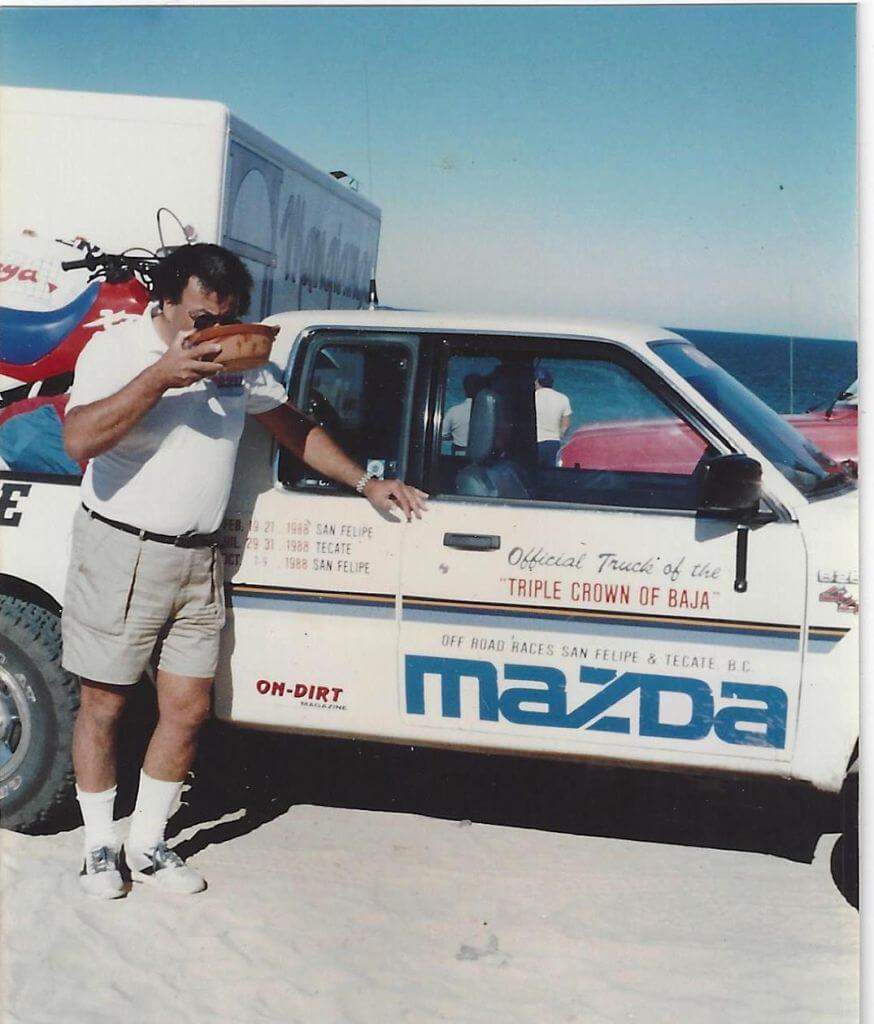
Matt Martelli:
Yeah. I mean, that's one thing I agree with. Not just the people here but even the government is pro off-road.
Lou Peralta:
Absolutely.
Matt Martelli:
So that's really cool. For you, you seemed to have grabbed a sixth gear. I don't know if it's your tune up that you just got, but you seem to be tackling more stuff, so what's in store for your future? What are you working on now? I know you're working on the UTV races that you're putting on in Baja and in California city, which are awesome events. If people haven't been to them they should go to them and check them out.
Lou Peralta:
The interesting thing is you never know what's in the future. And with me, I have some projects in Baja, I have some others. I've discussed this with people. A couple big sponsors and magazines want me to see if I can do a Baja 500, Baja 1000 strictly for UTVs. We've got that working, talking to the government. But there's also, other projects sometimes come my way and you don't know when they're gonna come. It goes back to what I told you earlier. You gotta keep your mind open. Now, you mentioned something about - I got a tune up. Yeah, it's really been helpful. For a while there, I thought, "eh, you're basically over." And then I get this open heart surgery and the doctor says, "man in another three or four months you're gonna feel like you're 40 again" and he was absolutely right.
So watch out. Because at 40 I was pretty much a crazy guy. But I'm enjoying life more. I'm enjoying the fact I got a reprieve. Everything now is a challenge to me once again. It wasn't for awhile there I was getting down, ya know, and all of a sudden they changed a couple hoses here and there and I'm ready to kick ass again. And so I leave everything open. I leave everything open. Even on the political end of it. I ran for mayor a couple times and got beat basically. There's a reason I got beat because I'm single minded in some cases. This is what I want and hey, take it or leave it. One of the things I wasn't going to be as a politician so I called it as I saw it and it's not politically correct to say certain things to people.
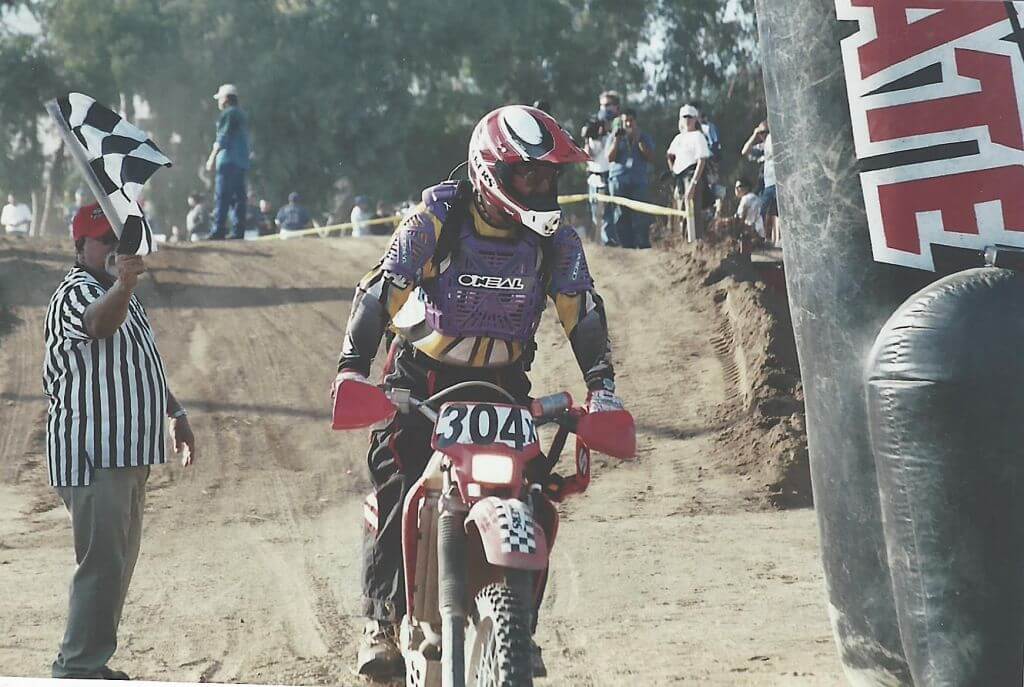
Lou Peralta:
But that's the way - I figure if I can get elected by saying exactly how I feel and what I feel - then I don't have to worry about what I said 6 months ago in a campaign or a year ago in a campaign. But now it looks like I'm more, not going to be a politician, but be in the political aspect of California. I've done some writing. People like some of the stuff I write so I'm going to continue to do that. This whole thing with the Internet and Facebook and everything intrigues me. How you can communicate with somebody almost instantaneously. That means such a powerful tool. I got to learn to use it better. To communicate whether it's promoting events or promoting ideas. I mean it's a wonderful thing, I didn't realize I could reach half a million people with just one comment because I've seen it done. Inadvertently cause I wasn't opt to do that and all of a sudden it snowballs, you got 340,000 people that looked at something. That's pretty amazing.
I feel like I got a whole learning curve to go through again, it's like being back in high school. Trying to find where your niche is gonna fit and stuff like that. And that's a great challenge. And people like yourselves and other guys, they get into this, it's .... it's wonderful, a great way of going through life, being challenged all the time. Being one step ahead of everything, I think that's great.
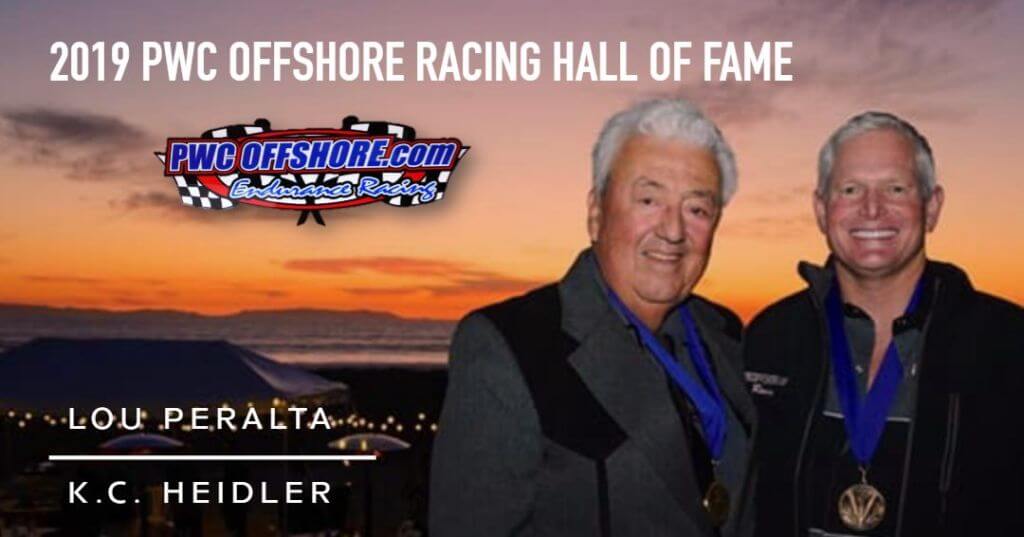
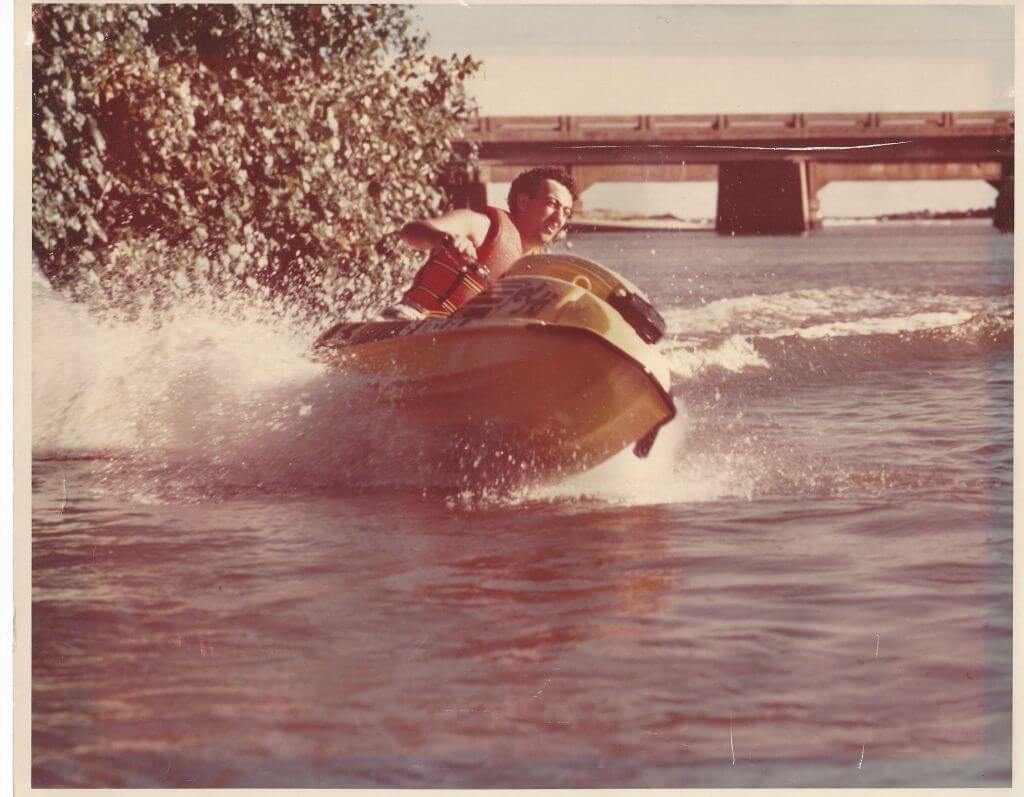
Matt Martelli:
Yeah absolutely. In kind of closing in a little bit, what advice would you give to people, young people who are trying to break into the business side of off-road?
Lou Peralta:
Well, learn it well first. Learn what's needed out there. Whether it's communicating with the local people, with the manufacturers. And you have to love it. If you don't love it, if you're going to go in for the business, I mean, you have to have a passion. I don't care what you're doing, cutting hair, or baking goods or putting on events. If you have a passion for it, there's nothing that can stop you. Only your own talent. But as long as you're doing it because you do have a passion for it, you want to see it realized, that makes just everything worthwhile. And that's what I try to tell my kids, I try to tell my grandkids and I try to tell my friends' kids, whatever there is, just build a huge passion for it. It just tells you, you're not even working. You're doing it because you love it. And that doesn't make a difference if you're a baker or you're cutting hair or seamstress, whatever. If you really love it, you've never worked a day in your life. I think that's very true.
